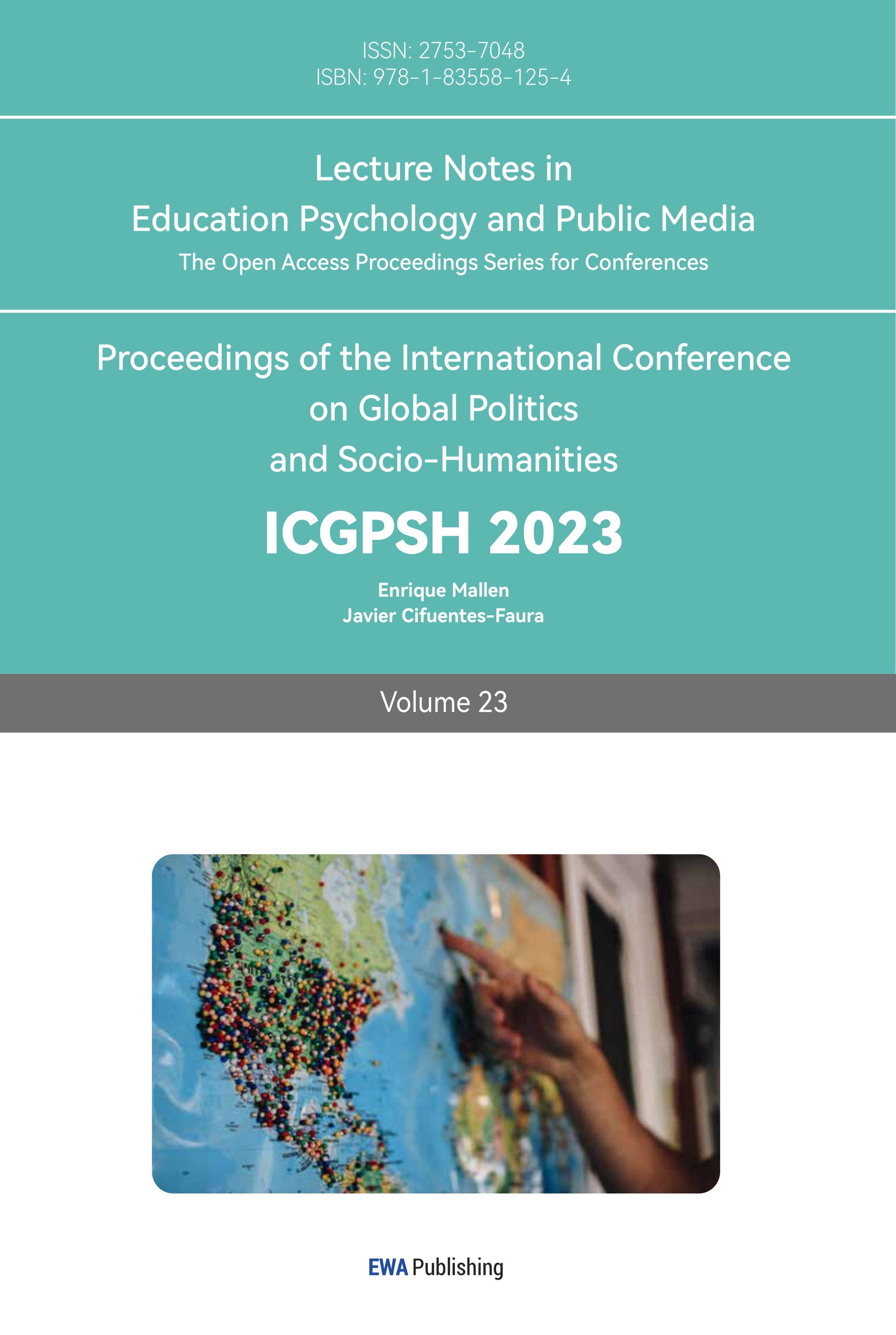References
[1]. Stephen M. Walt. (2016). The Case Against Peace. Retrieved from http://foreignpolicy.com/2016/06/17/the-case-against-peace-syria-europe-brexit-donald-trump/
[2]. Joseph E. Stiglitz, (2016). How a Currency Meant to Unite Europe Wound up Dividing It. Retrieved from https://www.nytimes.com/2016/07/28/business/international/how-a-currency-intended-to-unite-europe-wound-up-dividing-it.html
[3]. Zhanpeng Wang, (2016) The Brexit Referendum and the Prospect of a “Multi-Speed Europe”. Chinese Journal of European Studies, 4, 35-42.
[4]. China News. (2016). The First EU Summit Without a British Prime Minister is Imminent, and EU Leaders Voice Solidarity. Retrieved from https://news.sina.com.cn/o/2016-09-14/doc-ifxvukuq4446723.shtml
[5]. Yichen Zhong, Yingjie Luo. (2019) New Public Management Reform in European Integration: A Case Study of the Supranational Decentralization of Justice and Home Affairs in the European Union. Chinese Journal of European Studies, 3, 129-155.
[6]. Yousun Yang.(2022) Germany’s “Soft Strategy” for Countering Extremism. Deutschland-Studien, 3, 64-84.
[7]. Neill Nugent, Brexit: Yet another crisis for the EU. (2021)Brexit and Beyond, UCL Press.
[8]. Roberta Guerrina, Europe: History, Ideas and Ideologies. (2003) New York: Oxford University Press.
[9]. Eurobarometer 86, (2016) Standard Eurobarometer 86 - Autumn 2016. Retrieved from https://europa.eu/eurobarometer/surveys/detail/2137
[10]. Qipeng Shi, Donglin Han. (2017) Regime collapse in contemporary social movements: Qualitative comparative analysis of “Color Revolution” and “Arab Spring”. Quarterly Journal of International Politics, 5, 130-155.
Cite this article
Zhang,R. (2023). Research on Ways to Ameliorate the Degree of People’s Euroscepticism after the Brexit Referendum. Lecture Notes in Education Psychology and Public Media,23,306-315.
Data availability
The datasets used and/or analyzed during the current study will be available from the authors upon reasonable request.
Disclaimer/Publisher's Note
The statements, opinions and data contained in all publications are solely those of the individual author(s) and contributor(s) and not of EWA Publishing and/or the editor(s). EWA Publishing and/or the editor(s) disclaim responsibility for any injury to people or property resulting from any ideas, methods, instructions or products referred to in the content.
About volume
Volume title: Proceedings of the International Conference on Global Politics and Socio-Humanities
© 2024 by the author(s). Licensee EWA Publishing, Oxford, UK. This article is an open access article distributed under the terms and
conditions of the Creative Commons Attribution (CC BY) license. Authors who
publish this series agree to the following terms:
1. Authors retain copyright and grant the series right of first publication with the work simultaneously licensed under a Creative Commons
Attribution License that allows others to share the work with an acknowledgment of the work's authorship and initial publication in this
series.
2. Authors are able to enter into separate, additional contractual arrangements for the non-exclusive distribution of the series's published
version of the work (e.g., post it to an institutional repository or publish it in a book), with an acknowledgment of its initial
publication in this series.
3. Authors are permitted and encouraged to post their work online (e.g., in institutional repositories or on their website) prior to and
during the submission process, as it can lead to productive exchanges, as well as earlier and greater citation of published work (See
Open access policy for details).
References
[1]. Stephen M. Walt. (2016). The Case Against Peace. Retrieved from http://foreignpolicy.com/2016/06/17/the-case-against-peace-syria-europe-brexit-donald-trump/
[2]. Joseph E. Stiglitz, (2016). How a Currency Meant to Unite Europe Wound up Dividing It. Retrieved from https://www.nytimes.com/2016/07/28/business/international/how-a-currency-intended-to-unite-europe-wound-up-dividing-it.html
[3]. Zhanpeng Wang, (2016) The Brexit Referendum and the Prospect of a “Multi-Speed Europe”. Chinese Journal of European Studies, 4, 35-42.
[4]. China News. (2016). The First EU Summit Without a British Prime Minister is Imminent, and EU Leaders Voice Solidarity. Retrieved from https://news.sina.com.cn/o/2016-09-14/doc-ifxvukuq4446723.shtml
[5]. Yichen Zhong, Yingjie Luo. (2019) New Public Management Reform in European Integration: A Case Study of the Supranational Decentralization of Justice and Home Affairs in the European Union. Chinese Journal of European Studies, 3, 129-155.
[6]. Yousun Yang.(2022) Germany’s “Soft Strategy” for Countering Extremism. Deutschland-Studien, 3, 64-84.
[7]. Neill Nugent, Brexit: Yet another crisis for the EU. (2021)Brexit and Beyond, UCL Press.
[8]. Roberta Guerrina, Europe: History, Ideas and Ideologies. (2003) New York: Oxford University Press.
[9]. Eurobarometer 86, (2016) Standard Eurobarometer 86 - Autumn 2016. Retrieved from https://europa.eu/eurobarometer/surveys/detail/2137
[10]. Qipeng Shi, Donglin Han. (2017) Regime collapse in contemporary social movements: Qualitative comparative analysis of “Color Revolution” and “Arab Spring”. Quarterly Journal of International Politics, 5, 130-155.









